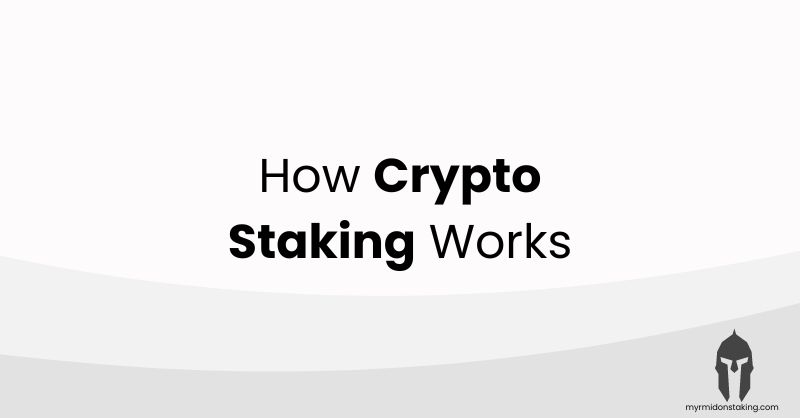
Understanding Crypto Staking
April 15, 2024
Staking is a way for crypto owners to make their assets work harder, contributing to the security and smooth operation of blockchain networks while also earning some extra cash. With the rise of the Proof of Stake (PoS) method on many blockchain platforms, it's crucial for anyone interested in crypto to understand what staking is and how it works. This post is here to demystify staking for you, explaining its benefits, how it operates, and what you should keep in mind if you're thinking about getting involved.
What is Staking?
At its core, staking is a way to participate in maintaining the operations of a blockchain in a more energy-efficient and participatory manner than the traditional Proof of Work (PoW) system, which requires massive amounts of computational power. Instead of solving complex puzzles, staking involves holding onto a certain amount of cryptocurrency and using it to support the network. Here's how it works:
Getting Started with Staking
Locking Up Crypto: You start by 'staking' some of your cryptocurrencies, which means locking them up in the network. This action qualifies you to help validate transactions and create new blocks.
Becoming a Validator: The network then selects validators based on how much crypto they've staked and for how long. Being a validator is essential for the network's security and decentralized nature.
Validating Transactions: Once chosen, validators check transactions for authenticity and help in adding new blocks to the blockchain. Validators that approve fraudulent transactions risk losing their staked crypto, a security measure known as 'slashing.'
Earning Rewards: Validators earn rewards, which could be in the form of transaction fees or new tokens, depending on the network's rules.
Why Stake Your Crypto?
Staking isn't just a behind-the-scenes technical process; it offers several tangible benefits:
Staking rewards you with additional cryptocurrency, similar to earning interest, boosting the value of your digital assets. It also enhances security by preventing centralization, and protects against attacks.
Considerations Before Staking
While staking has its attractions, there are factors to be aware of:
Liquidity: Locking up your crypto means you can't sell it right away, so you need to balance immediate needs against future rewards.
Market Risks: The volatile nature of crypto markets can affect the value of your staked assets and the rewards you receive.
Slashing Risks: Failing to comply with network rules can result in losing part of your staked crypto.
Expanding Opportunities Through Staking
Staking is more than just a way to earn extra crypto; it's a step towards a more sustainable, decentralized, and participatory blockchain ecosystem. Whether you're a seasoned investor or new to crypto, staking offers a way to actively engage with and contribute to the blockchain's future, all while potentially earning rewards.
Platforms like Concordium are making it easier to get started with staking, offering a secure and privacy-focused way to earn from your crypto. As you dive into staking, remember that it's not just about personal gain but also about supporting the broader goals of blockchain technology.
So, if you're looking to make your cryptocurrency do more for you, consider staking as a way to unlock new possibilities for engagement and earning in the crypto world.